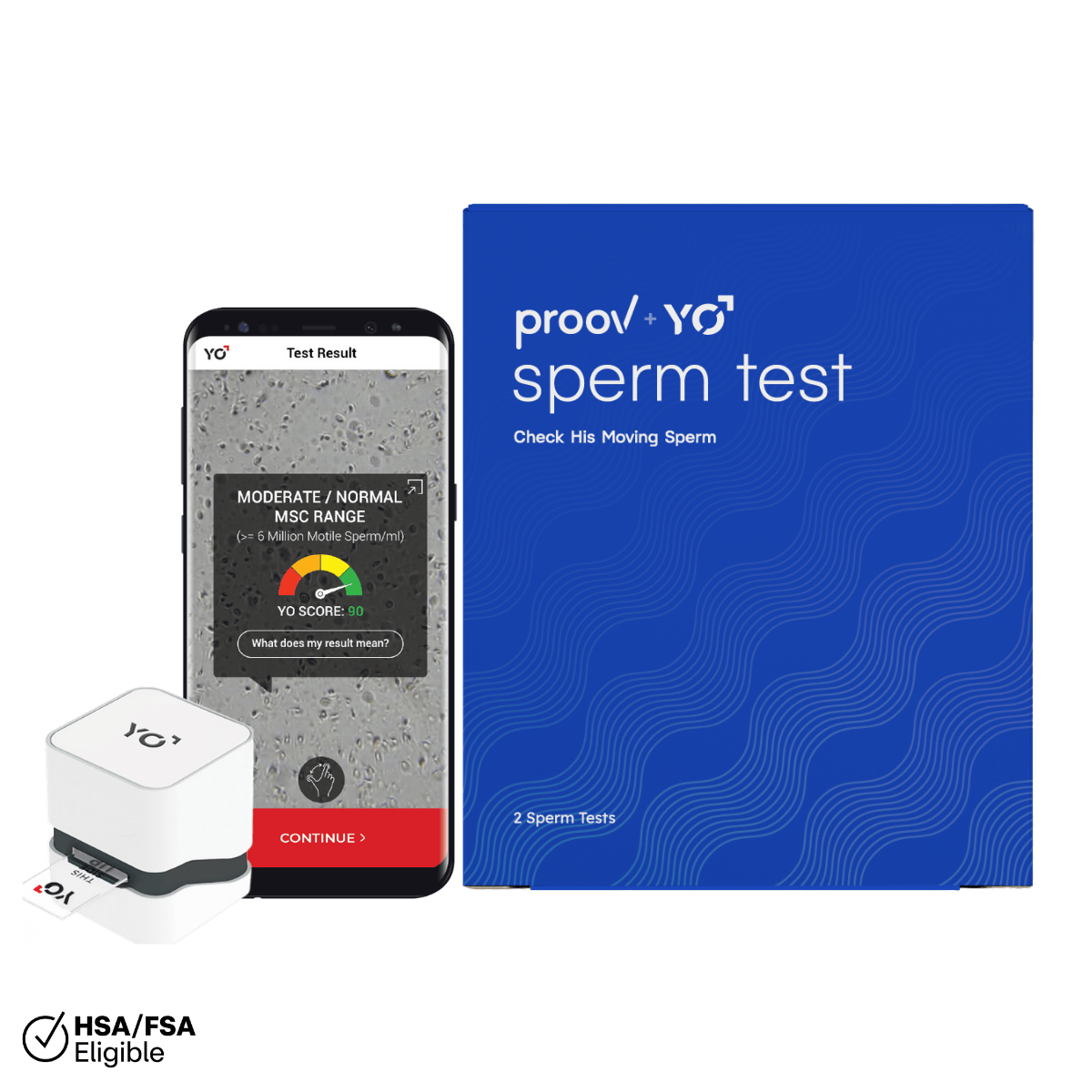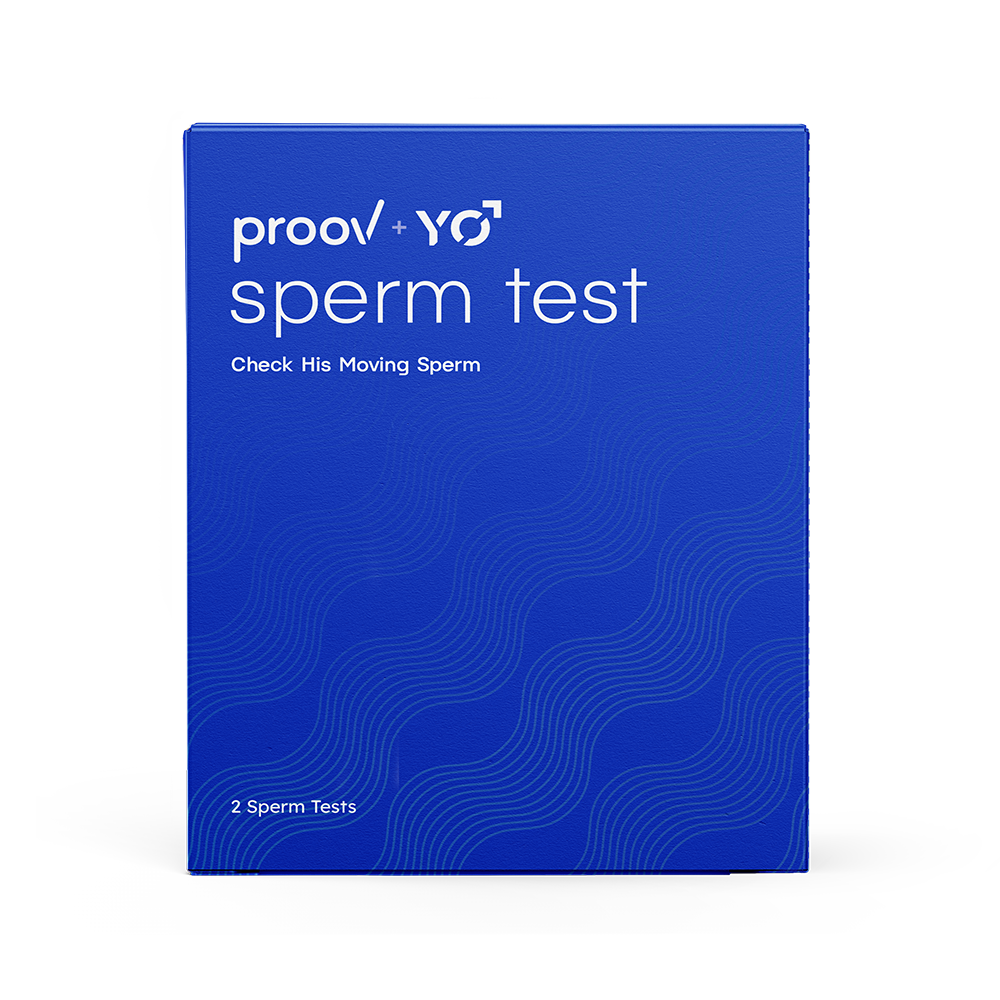Painful periods may have you glued to your sofa, plowing through a sleeve of cookies, and snuggling a hot water bottle like your life depends on it, but could this misery mean you’re more fertile? Over half of all women experience painful periods, and 15 percent of those have to miss work or school because of severe pain, according to Yale Medicine. Let’s find out if this suffering has a silver lining and answer this question: “Are painful periods a sign of good fertility?”
Understanding Menstrual Pain
To understand painful periods, we first need to define menstrual pain, talk about its causes, and learn what kinds of effects it can have on your fertility.
What is menstrual pain?
You may know menstrual pain well — that throbbing or cramping in your lower abdomen during a period. According to Mayo Clinic, this pain can hit you just before or during your period and can range from mildly annoying to doubled-over-crying depending on the person.
What causes menstrual pain?
As your period gets ready to start, natural chemicals called prostaglandins activate, telling your uterus to contract. These sometimes painful contractions make the built-up lining of your uterus slide off, where it exits through your cervix and vagina. According to the American College of Obstetricians and Gynecologists, your prostaglandins work double-time during the first few days of your period, which makes it the most painful time for most women.
Does menstrual pain indicate good fertility?
The short answer: Not really. Menstrual pain isn’t a sign of strong fertility, and in some cases, severe pain may even point to conditions like endometriosis that can make it harder to conceive (Mayo Clinic). What matters more for fertility is whether you’re ovulating regularly — not how much discomfort you feel during your period. The good news? Many people with painful cycles still go on to get pregnant.
Menstrual pain vs dysmenorrhea
Menstrual pain describes those pesky, uncomfortable cramps you feel before or during a period. Dysmenorrhea, however, is the medical term for excruciating period pain that disrupts your life. Dysmenorrhea has two types: primary, which has no underlying cause other than regular cramps, and secondary, which happens when you have pain caused by conditions like endometriosis, fibroids, or other issues involving the uterus.
Pain and Fertility: What is the correlation?
Period paid can affect your fertility if a medical condition causes it. But we can bust several myths about painful periods and fertility.
What are the warning signs of infertility?
The clearest sign of infertility is having regular, unprotected sex for a year (or six months if you’re over 35) without getting pregnant, according to Cleveland Clinic. Other signs of infertility can include irregular cycles, missed periods, or pain so severe it interferes with daily life. These may point to conditions affecting the uterus or ovaries – and that’s where a doctor can help you sort out what’s normal versus what might need attention.
Common myths about period pain and fertility
It’s hard to know if you can trust what you hear about period pain and fertility — here a few of the myths floating around:
-
Myth: Severe period pain is normal. Fact: It’s not normal for period pain to interfere with your daily life and keep you from work or school.
-
Myth: Painful periods mean great fertility. Fact: Lots of pain during your period doesn’t suggest good fertility – in some cases, it could be tied to conditions that make it harder to conceive.
-
Myth: Painless periods mean you can’t get pregnant. Fact: A lack of pain during your period doesn't say anything about your fertility, and many women can still conceive without issues.
Is ovulation pain a fertility signal?
Some women get a bonus dose of pain separate from their periods: ovulation pain. If you can feel it, ovulation can feel like a light twinge or a sudden sharp sensation in one side of your lower abdomen. This pain can last anywhere from a few minutes to a whole day. While ovulation pain doesn’t affect fertility on its own, it can be a helpful clue that your body is in its fertile window and ready to ovulate.
When to seek medical advice about the pain?
If your periods hurt so bad that it affects your daily life, talk to a doctor. They can help you find out what’s going on so you can get some relief.
When Pain Might Indicate a Fertility Issue
Most of the time, cramps are just an uncomfortable (and unfair) part of having a period. But sometimes, severe or persistent pain can be a sign of an underlying condition that might affect fertility. Here are a few of the most common ones:
Endometriosis
When you have endometriosis, the tissue that lines your uterus can grow outside its usual zone — including around your ovaries and fallopian tubes. When endometriosis grows here, it can cause damage and make getting pregnant difficult.
PCOS (Polycystic Ovary Syndrome)
Polycystic ovary syndrome (PCOS) throws your reproductive hormones out of balance, which makes ovulation and periods super irregular and unpredictable. This makes PCOS one of the number one causes of infertility in women.
Fibroids
Fibroids — non-cancerous growths — can sometimes develop in the uterus and can cause extra period pain, missed periods, bleeding between periods, and infertility.
Pelvic inflammatory disease (PID)
Pelvic inflammatory disease (PID) is a common infection that usually starts in the vagina, and moves up through the cervix and into the uterus, fallopian tubes, and ovaries. If left untreated, PID can lead to scarring that impacts fertility.
Signs of Good Fertility
We’ve talked a lot about when pain might point to an issue – but let’s end on a more positive note. There are plenty of signs your body is working just the way it should when it comes to fertility.
Regular cycles
Regular and somewhat predictable menstrual cycles are a great sign of healthy fertility. “Regular” periods can mean different things to different people. “Regular” doesn’t have to mean a perfect 28 days – anywhere between 21 and 35 days is considered normal. What matters most is that your cycle is fairly consistent from month to month.
Healthy cervical mucus
Your cervical mucus can tell you a lot about how ready your body is to make a baby. Right before ovulation, your cervix makes much more mucus, which turns clear, thin, and slippery — perfect conditions for sperm to travel.
Normal ovulation patterns
In the beginning of your cycle, FSH (follicle stimulating hormone) prompts your ovaries to start growing and maturing an egg. Around the middle of your cycle, another hormone called LH (luteinizing hormone) surges, telling your ovaries to release an egg.
Commonly asked questions
When you are fertile, do you get period pains?
You can have period pain and still be very fertile, but cramps themselves don’t mean you’re more likely to get pregnant. Some women also notice a little twinge of pain around ovulation, which can be a helpful sign that it’s a good time to try. And remember, everyone’s cycle looks a little different, so what matters most is learning what’s normal for your body.
When should you see a doctor about period pain?
If your menstrual pain is so strong that it keeps you from school, work, or everyday life, it’s time to check in with a doctor. Period pain is common, but that doesn’t mean you have to suffer through it, and a provider can help you find relief and rule out conditions that may affect fertility.
How do you tell if you are very fertile?
Healthy fertility can show up in different ways, but some common signs include having cycles that are fairly regular, noticing fertile-quality cervical mucus (clear, stretchy, and slippery) as ovulation approaches, and seeing signs that ovulation is happening month to month.
Remember: everyone’s body looks a little different. Even if your periods or symptoms don’t match someone else’s, it doesn’t mean your fertility is “bad.” Learning your unique patterns is one of the best ways to understand your health and support your chances of conception.












